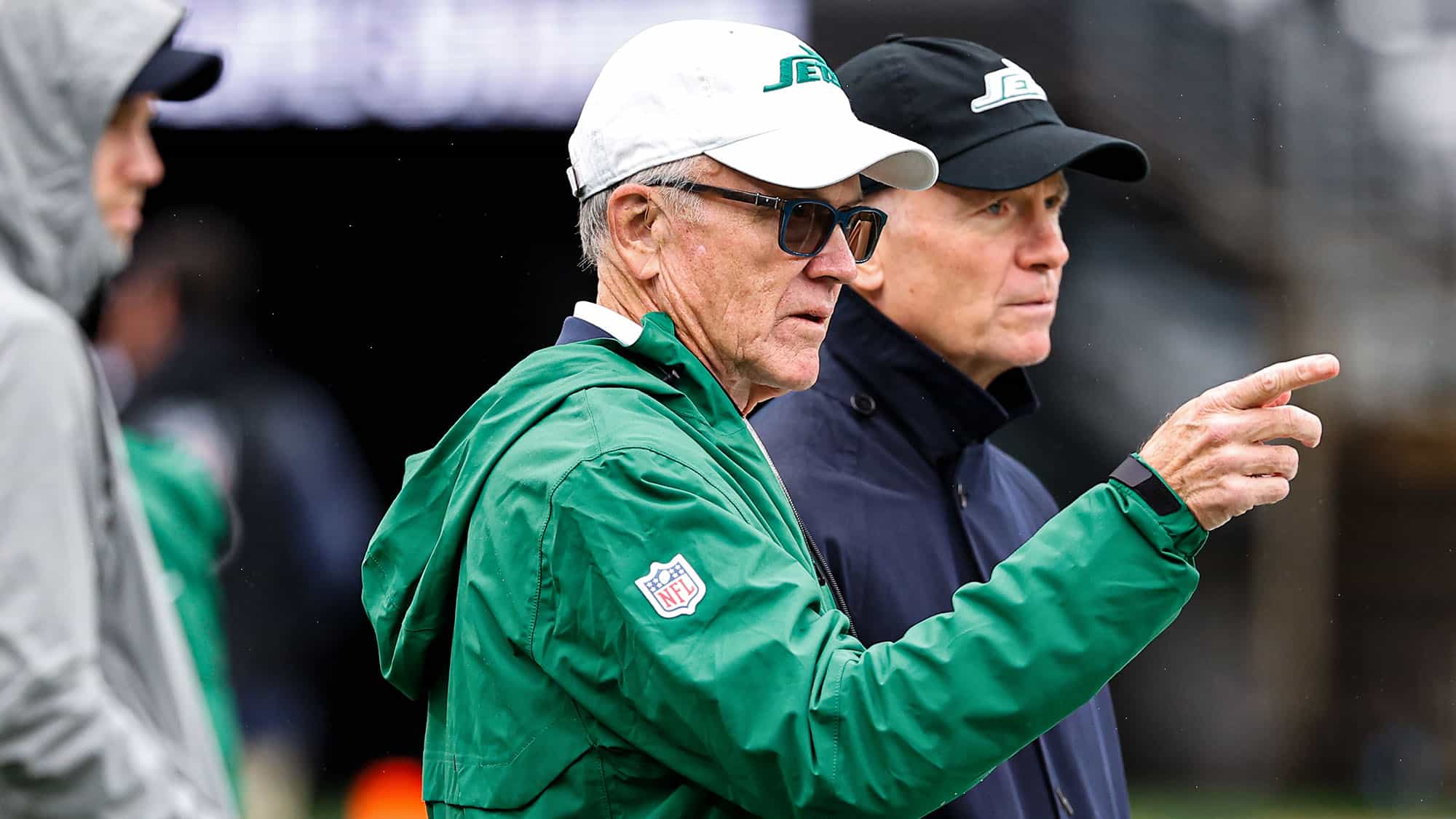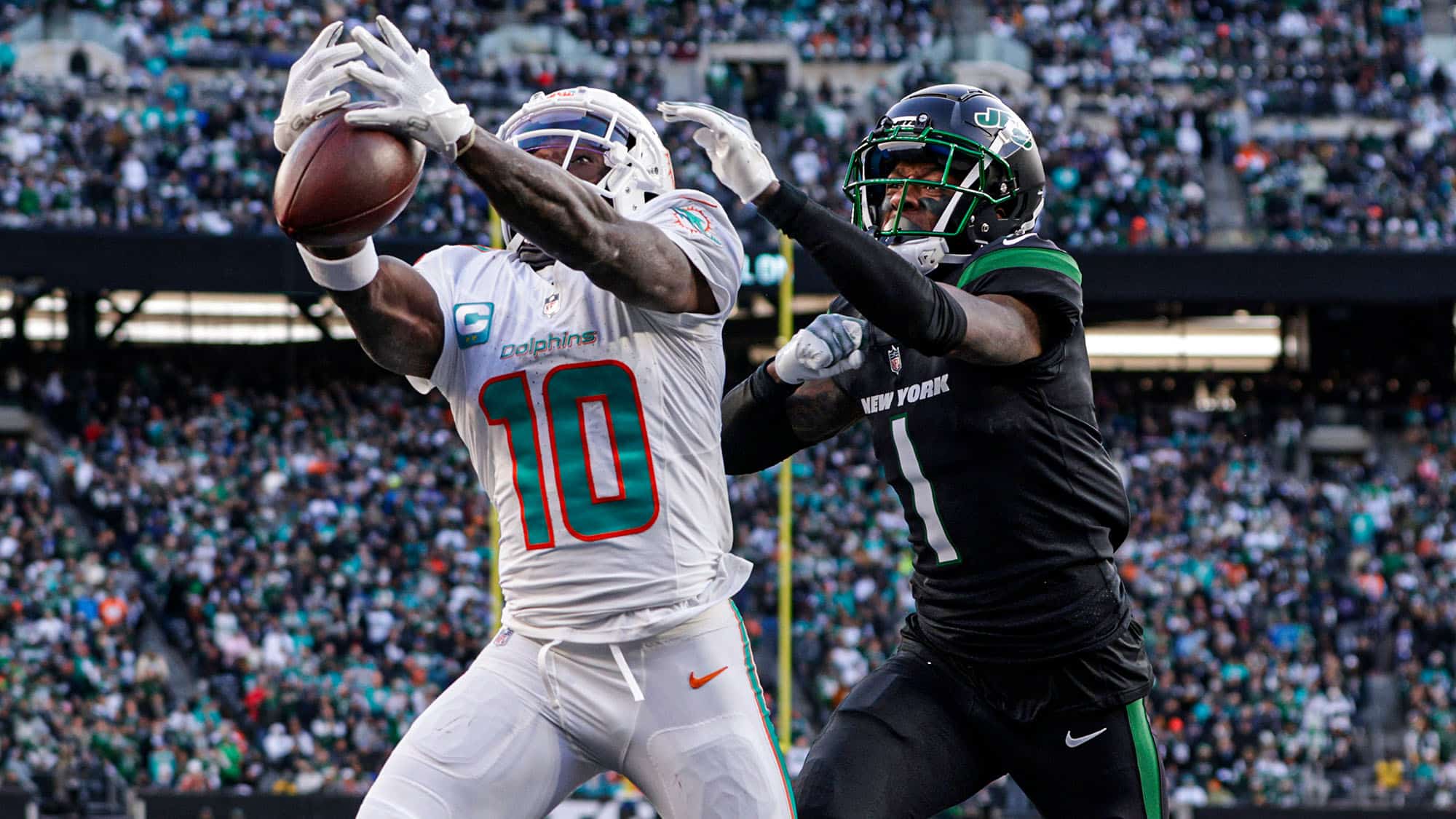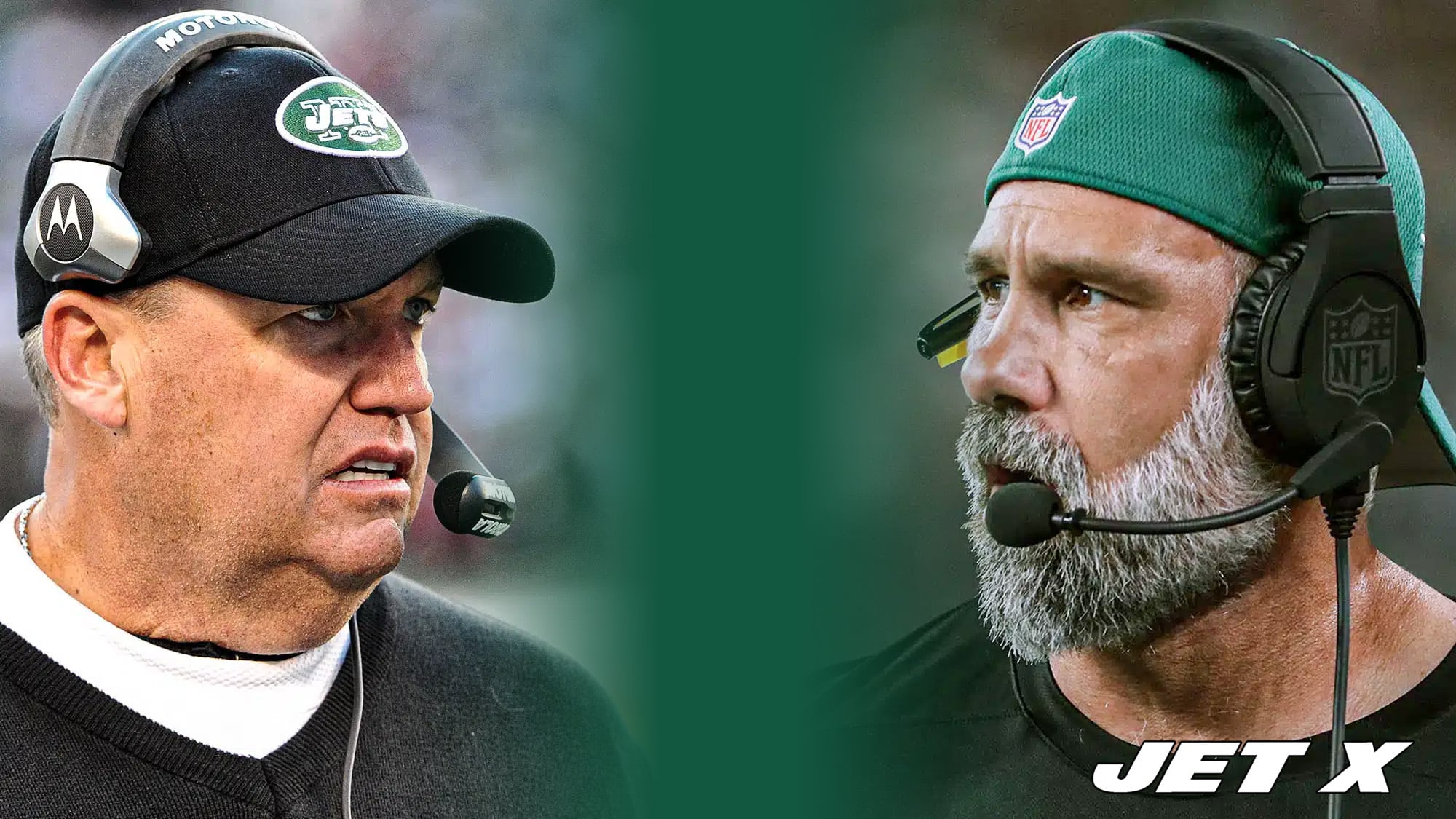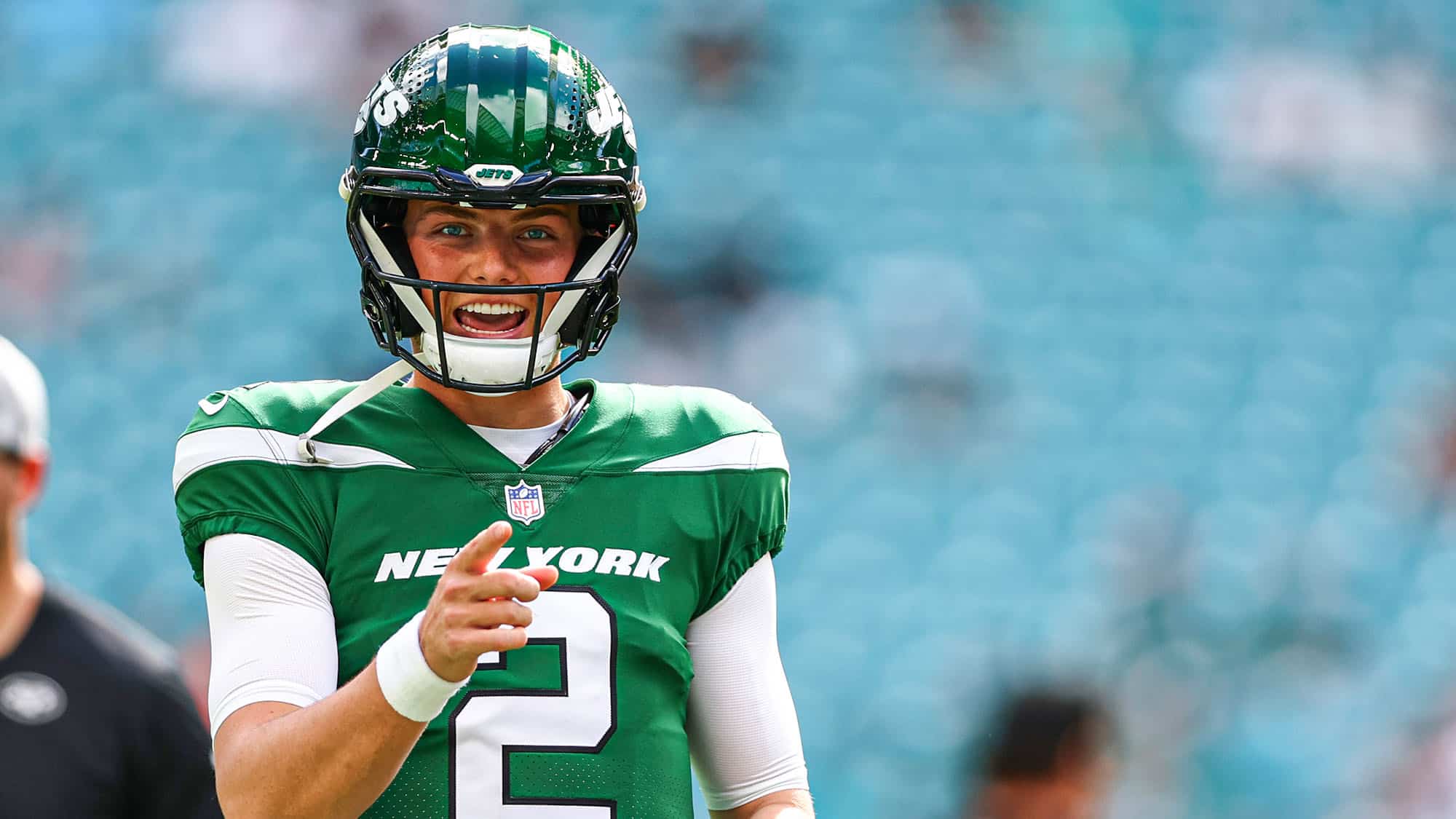The franchise tag could be useful for the New York Jets
There may be no mechanism more infuriating to NFL players who deal with it than the franchise tag. Now, the New York Jets can take advantage of it.
In the next part of our salary cap series, we’ll discuss what the tag is, how it works, when it does and does not count in full against the cap, and how it works in the case of a trade.
Franchise tag
The concept of the franchise tag is understandably upsetting to players dealing with it. Essentially, it can prevent some of the biggest stars from receiving their fair market value. It is like a handcuff of sorts. Still, the players had the opportunity to try to fight against it in the last Collective Bargaining Agreement negotiations, and that did not happen — perhaps because it affects only a handful of players each season. Each NFL team can place a tag on one player with an expiring contract per offseason.
There are technically three types of tags — the exclusive franchise tag, the non-exclusive franchise tag, and the transition tag. When you hear the term “franchise tag,” it is almost exclusively referring to the non-exclusive tag.
- The exclusive franchise tag is calculated based on the top five salaries at the position. The player cannot negotiate with other teams but can still negotiate a contract extension with their current team until July 15.
- The non-exclusive franchise tag is calculated based on the top five salaries at the position over the previous five years (or 120% of the player’s previous salary, whichever is greater). Under the non-exclusive tag, the player can negotiate both with their current team and other teams. The tagging team can choose to match any offer sheet or let the player go for two first-round picks as compensation.
- The transition tag is calculated based on the top 10 salaries at the position. It comes with the right to match any offer sheet but no draft compensation.
(Note: The non-exclusive and transition tags are where the proverbial “poison pill” contracts come in. Although the NFL has attempted to ban them, offering teams still try to create contract structures that the tagging team cannot match.)
Over the Cap lists the projected non-exclusive and transition tag numbers here, though they are subject to change as the league determines the total salary cap for 2024.
The non-exclusive franchise tag is the most common tag because no team will give up two first-round picks for a tagged player. However, for Lamar Jackson in the 2023 offseason, there was a legitimate chance that a team would give up the two first-round picks. That did not materialize, as Jackson signed an extension with the Ravens.
Bryce Huff
Bryce Huff‘s official NFL position is outside linebacker, which means that his projected non-exclusive franchise tag amount is $21,922,000. His transition tag number is approximately $18,599,000. He will likely file a complaint with the NFL to try to change his position to defensive end, which is where he actually plays. If so, his non-exclusive tag amount would be $23,348,000, and his transition tag number would be $20,141,000.
The Jets would almost certainly go the non-exclusive tag route if they were to tag him. They could try the transition tag, but there would be a risk of losing Huff for nothing.
Trading a franchise-tagged player
This is where the misinformation comes in.
Here is the contract of Cowboys running back Tony Pollard, who played on the franchise tag in 2023.

The entire contract is base salary. Therefore, if a team trades for the player, they take on the whole franchise tag amount (as explained in the trades article). It wouldn’t cost the Jets a dime to trade him after tagging him.
The bigger question people often ask is, why would a team take on nearly $22 million for Huff and also give up draft capital? The answer is simple, and it goes back to the term tag and trade.
The franchise tag comes in lieu of a contract extension. If a player signs an extension after being tagged, the tag number no longer exists. The new contract takes effect immediately.
If the trading team signed Huff to an extension, the $21.9 million franchise tag number would be null and void. Huff would take the extension because it guarantees him more money and more long-term security than just the one-year tag.
The new team would trade assets for the exclusive opportunity to sign Huff to an extension. In fact, the Jets would allow Huff to negotiate with teams before any trade, making sure that he found a team willing to sign him to an acceptable contract.
There is a credible scenario in which the Jets receive substantial draft pick compensation in return for trading Huff. It’s risky, of course; they do not want to be stuck paying him $21.9 million in 2024. If the market is above the amount they’re willing to pay for him, they’ll probably be able to trade him. If it’s not, they should negotiate with him under the tag and then sign him to an extension themselves.












These breakdowns have been great, the only thing I would say, is the tag doesn’t prevent the player from getting fair market value. They do get market value based on other salaries for THIS season. They don’t like it because it prevents them from getting fair market value for future seasons. It’s a risk, if they play poorly, or get injured it’s difficult for them to get a long term contract at the value. Players want to be paid long term for production in a particular season with a projection they will continue to play that well.
Think Laken, he got his money and has now checked out. He’s not getting much.
The thing I’m still unclear on is: I’ve hear players get tagged with a 1st round or 2nd round tender” does that mean the tagging team can chose based on salary?
Fair point.
The first or second-round tender refers to restricted free agents — separate from the franchise tag. A restricted free agent is a player with three accrued seasons and an expired contract. The team can place a first-round tender, a second-round tender, an original-round tender, or a right-of-first-refusal tender on a restricted free agent, or they can choose not to tender a contract.
Each tender comes with a specific salary attached (the higher the tender, the higher the salary). Another team can sign the player to an offer sheet, but the tendering team has the right to match the offer. If they choose not to match it, they will receive a first-round pick for the first-round tender, a second-round pick for the second-round tender, a pick in the same round the player was drafted in for an original-round tender, and nothing for the right-of-first-refusal tender.
For example, Bryce Huff was a restricted free agent last offseason because he had been with the Jets for 3 years on his original undrafted free agent contract and his contract expired. The Jets placed a second-round tender on Huff, and he signed the $4.3 million tender. Had another team offered Huff a contract, the Jets could have either matched the offer or let Huff go and received a second-round pick as compensation. (That did not preclude them from trying to negotiate a contract extension with him, but they chose not to.)